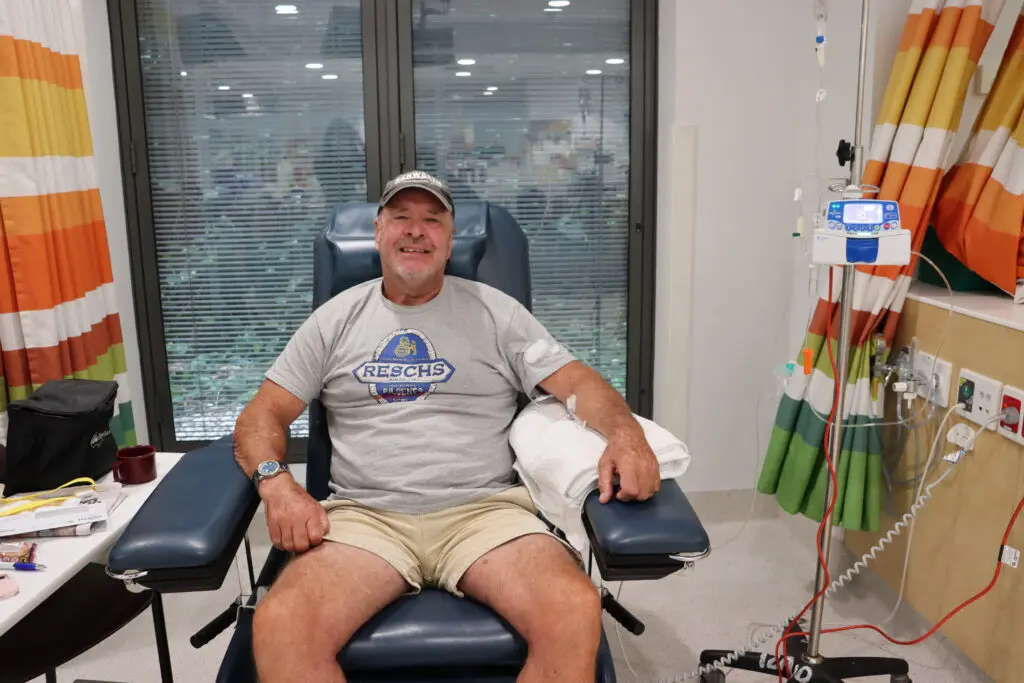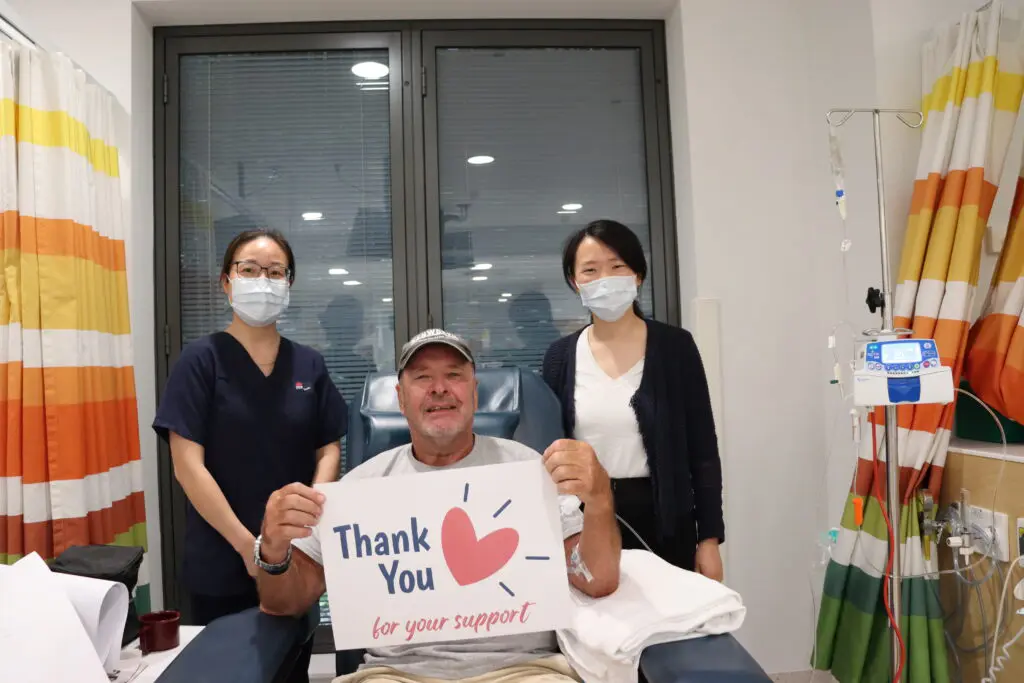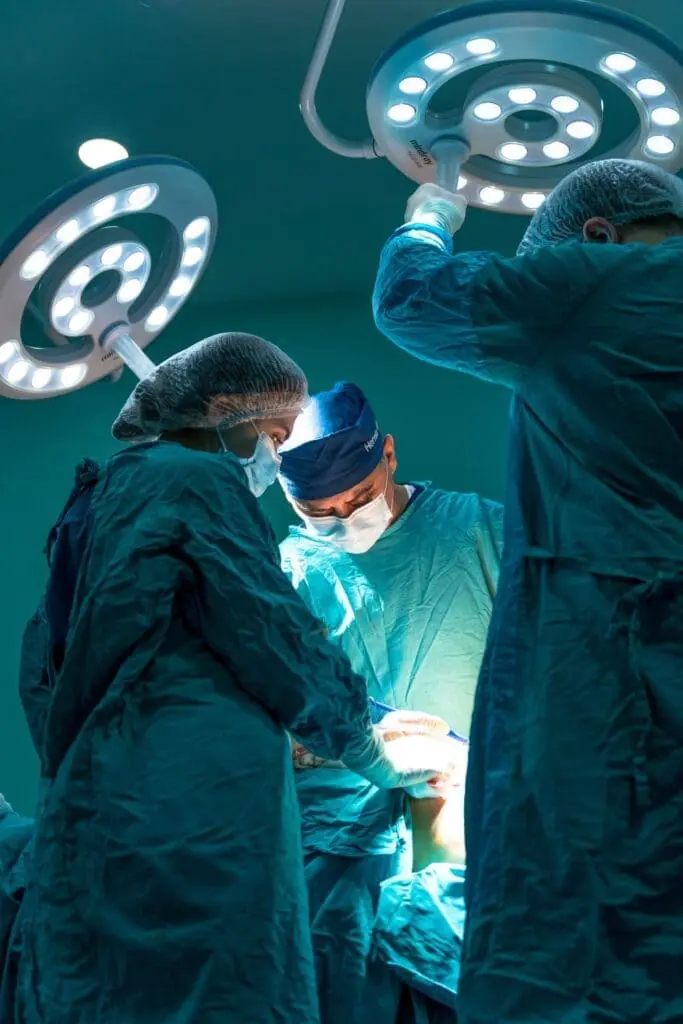
Diagnosed with a deadly skin cancer, Steve had been given a few months to live but was extremely grateful to be a successful candidate for a clinical trial.
Like most people who grew up in the 1950s and 1960s, Steve says that he wasn’t educated about sun protection. In fact, he remembers that a tan was considered healthy and the most sunscreen he would put on was a swipe of zinc across the bridge of his nose.
He went to work in construction, where it was par for the course at the time for workers to take their shirts off on building sites to get some sun on their already-tanned skin.
The long-term damage that overexposure to the sun can cause became apparent when Steve was in his mid-40s. During annual visits to the skin specialist, the occasional lesion would be burnt or cut out, but they weren’t serious.
Steve’s aggressive skin cancer is diagnosed
Steve was 67 years old when he felt lumps in the lymph glands in his groin while having a shower. At first, he didn’t do anything about it as they weren’t painful, but when they grew, he made an appointment with his GP who sent him for a biopsy and a series of scans.
He was in disbelief when his GP informed me that I had stage III Merkel cell carcinoma, a rare and highly aggressive type of skin cancer, and was given three to six months to live.
“I never heard of the type of cancer I had,” said Steve. “I felt like I was in a bad dream.”
Within six weeks Steve started radiotherapy to shrink the nodes in his lymph glands which made him feel unwell and extremely fatigued. He couldn’t do physical activity and lost around seven kilos. Understandably his family were extremely concerned.
When a checkup showed there was new cancer activity in the lymph nodes in Steve’s chest, his GP referred him to Associate Professor Alex Guminski at Royal North Shore Hospital (RNSH) as a potential candidate for an oncology clinical trial.
A clinical trial was Steve’s best chance of survival
Steve admitted that he didn’t know anything about clinical trials, but his concerns were alleviated when Dr Guminski informed him that clinical trials allow medical researchers to investigate new treatments or medicines to treat illnesses like cancer to help people live well for longer. The trial Dr Guminski recommended involved immunotherapy, where your own immune system helps fight the disease.
Steve had additional radiotherapy to shrink the lymph nodes that were pressing on his pancreas before joining the clinical trial in October 2022.
Every fortnight for two years, Steve travelled from the Central Coast to the Northern Sydney Cancer Centre at RNSH where he was closely monitored during every hour-long intravenous immunotherapy treatment. At first, Steve recalls that he was impatient and while the nurses were fantastic, all he could think about was wanting to get out of hospital.
Steve says his healthcare team, including Dr Sam Miller, Dr Helena Sim, Dr Wai Chan, and clinical trial coordinators Sally McCowatt and Yun Fan, were wonderful. He says he couldn’t have asked for better people to take care of him as they were incredibly patient, kind and caring, and answered any questions he had about his treatment. They all celebrated when the scans started to show the lymph nodes were shrinking.

Steve’s positive outlook on the future
Steve considers himself lucky that the only side effects he suffered were slightly dry skin and feeling a little tired the day following treatment. However, he didn’t experience any significant side effects and throughout his treatment, he’s felt well enough to take on small building projects, help his sons with their civil construction business, go to the gym and play lawn bowls twice a week.
“I honestly felt good throughout the treatment, and a friend asked me if I still had cancer,” said Steve. “I replied I’m going OK, but I still got it!”
He believes that if you look after yourself physically and mentally, it will take your mind off the diagnosis and help you get through the treatment.
The clinical trial finished in November 2024, and Steve feels well and incredibly lucky that this treatment was available to him at no cost. He will only need to return to hospital for scans every few months but he’s confident about the future.
Unable to travel long distances due to his fortnightly appointments, Steve is looking forward to catching up with his siblings who live in Queensland, before celebrating Christmas with a large family gathering, including his three sons and seven grandchildren. Next year he has his sights set on travelling further afield to Western Australia and New Zealand’s South Island.
Steve knows the dangers of over exposure to the sun and is now always telling his grandchildren to put on sunscreen and wear a hat.
Around 300 Australians are diagnosed with Merkel cell carcinoma each year, with Australia having the highest incidence of this cancer in the world and cases are rapidly increasing.
If you would like to support life-changing clinical trials, please make a donation here.
